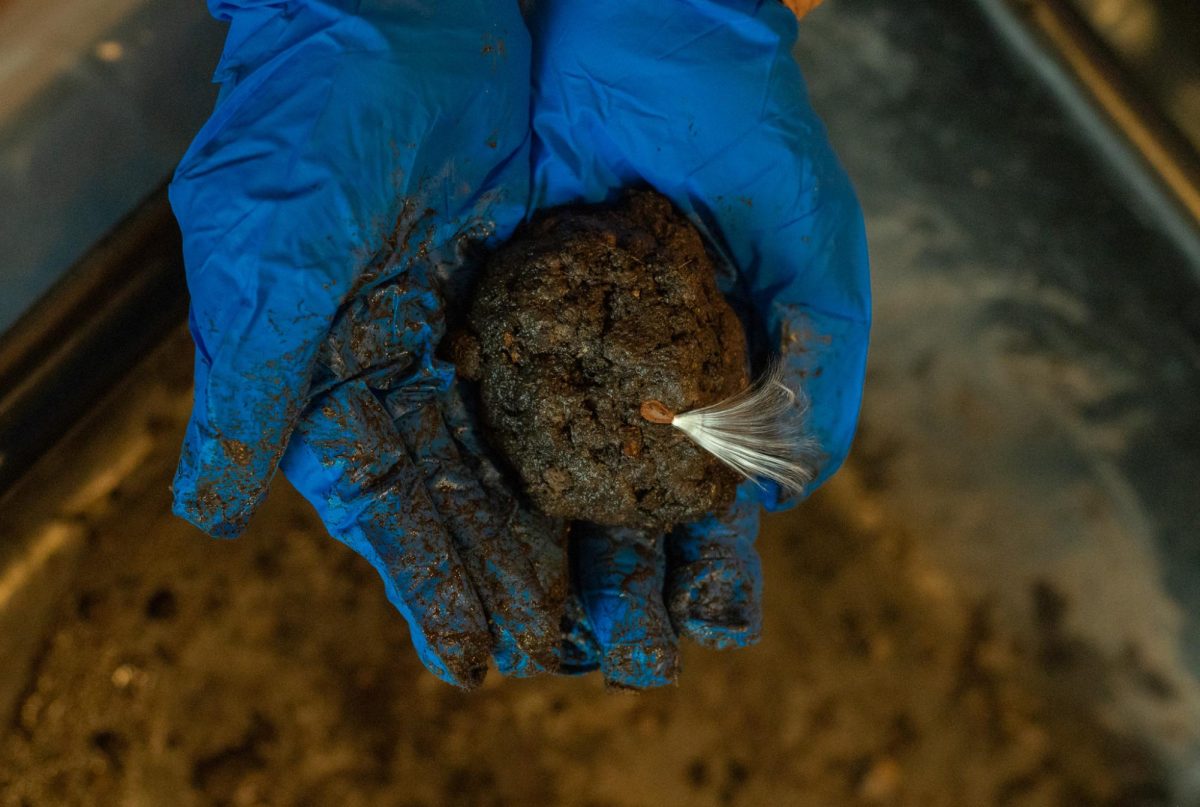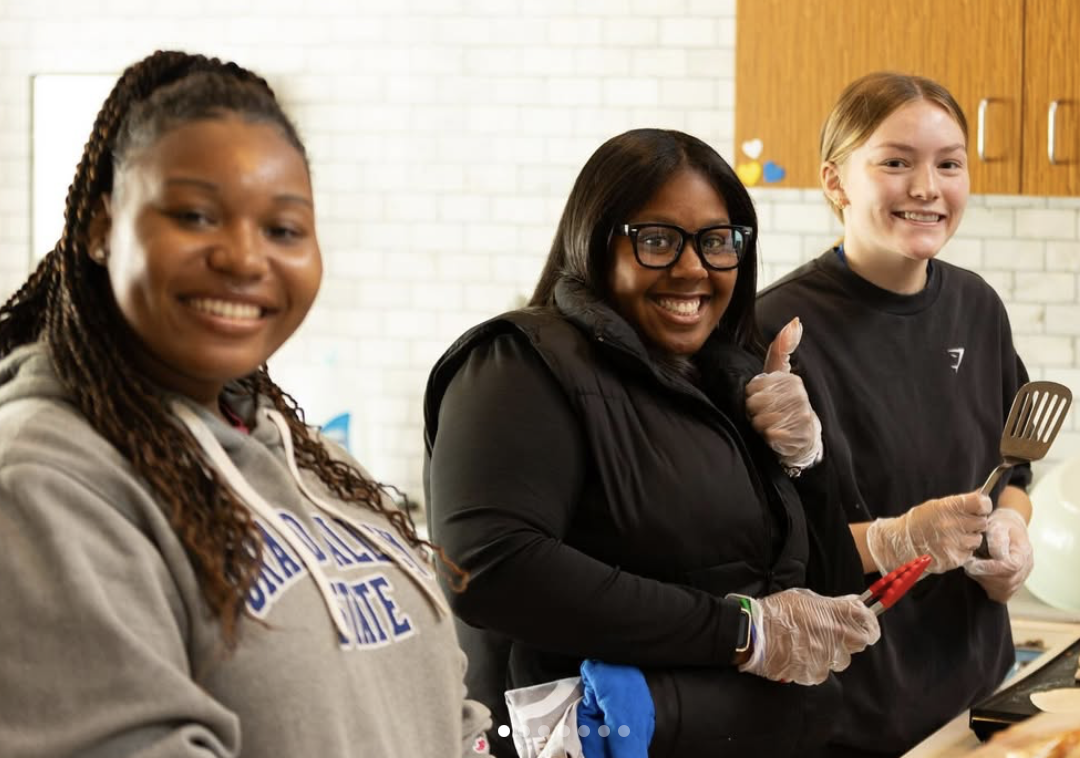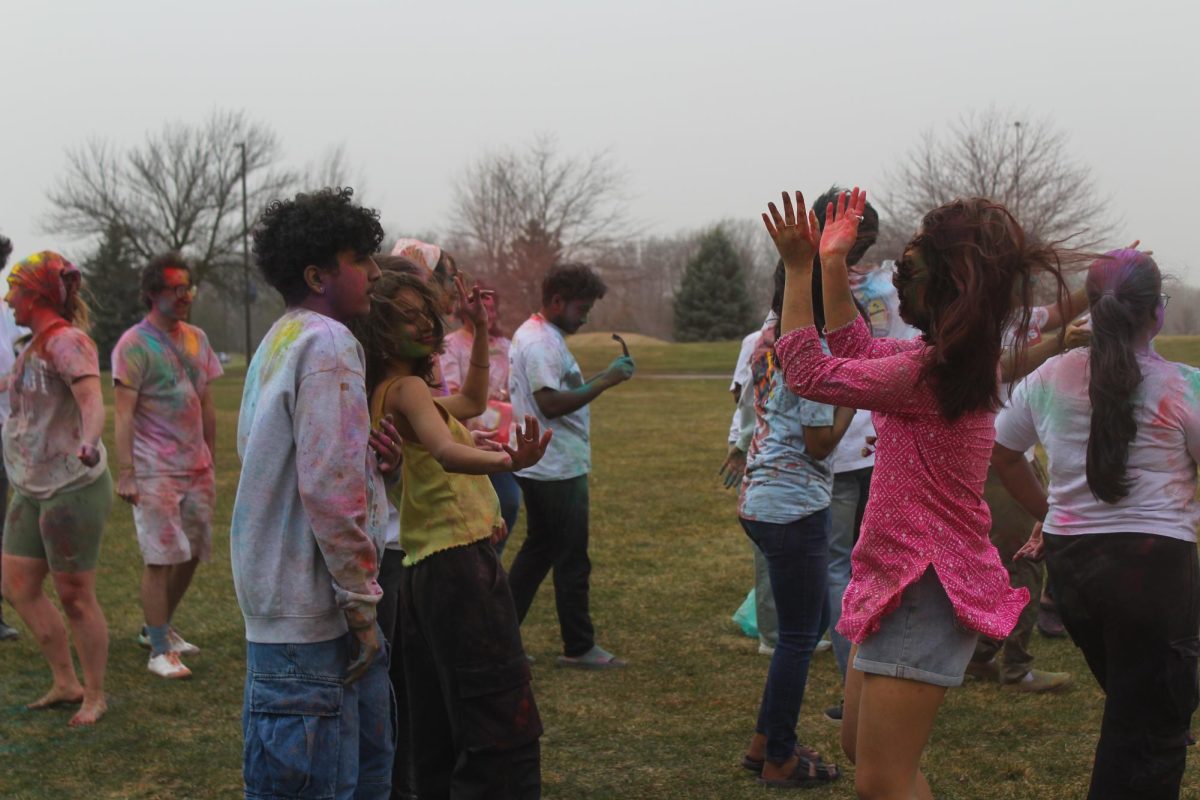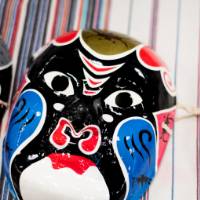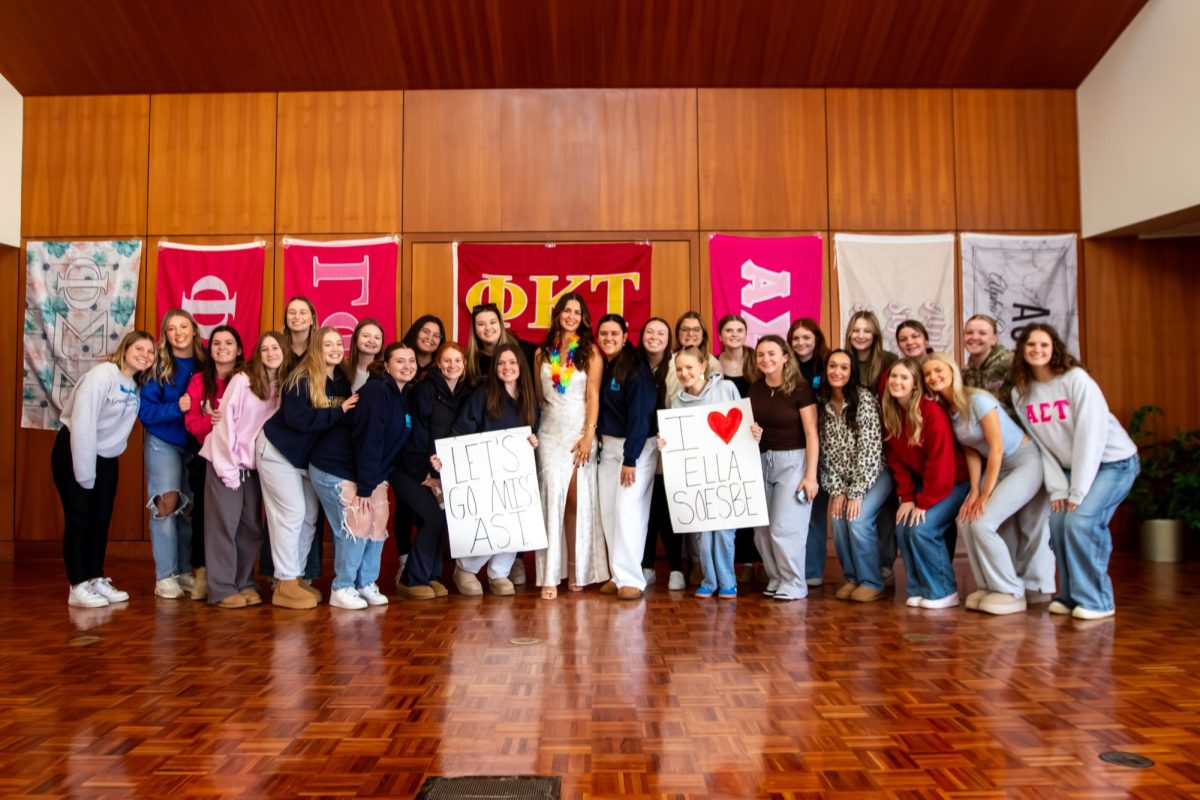University Development at Grand Valley State University hosted Student Philanthropy Week from Sept. 23-30. Seed Ball Creation was organized by the GVSU Sustainable Agriculture Project (SAP) on Tuesday, Sept. 24, in which students were invited to participate in making seed balls. The creations help pollinate flowers on the University’s educational farm site.
Seed balls, also known as seed bombs, are small balls made of a mixture of seeds, clay and compost or soil. Participating students were invited to volunteer their time, and create their own seed balls at the Kirkhof Center. Designed to make planting easier and more fertile, particularly for SAP interns, seed balls are commonly used in both general gardening and regrowth of forests.
The seed ball’s clay layer protects the seeds themselves from being eaten by birds or washed away, while the compost or soil inside provides essential nutrients for the plant. Once placed in the ground and exposed to moisture, the seeds within the ball germinate and grow. This technique protects seeds from external elements and predation, making it effective for propagating plants. Seed balls are also designed to be scattered in soil to guide insects as they pollinate flowers, which promotes biodiversity and supporting the environment.
“The seed ball event is part of our Student Philanthropy Week celebrations, (which) focuses on how you can give back just a few moments of your time to make a difference in your community,” said Anna Davis, the assistant director of Annual Giving and Digital Strategy at GVSU.
This activity, along with SAP’s other projects, allow volunteers to see how their labor makes a difference. Both interns and student volunteers participate in the planting and maintenance process for SAP. Interns involved in SAP then harvest the fruits and vegetables, which are sold to the campus community in front of the Cook Carillon Tower every Wednesday throughout the fall semester.
“This space (SAP) may be their initial exposure to what it means to be sustainable, (and) how they (students) use what they have learned here in their everyday life will have a much more significant impact than the five acres we farm on,” Michael Hinkle, a former SAP farm manager and educator, told GVNext.
GVSU Beekeepers, another organization overseen by SAP, was one of the many groups collecting donations throughout the course of Student Philanthropy Week. The beekeepers extract and bottle honey at the agricultural site, as well as conduct plant research, make chapstick and go on bee-related outdoor trips. They promote pollinator-friendly practices by using seed balls and planting native gardens that limit use of pesticides. Funds donated to the beekeeping club will support the health and care of their bees, and resources for beekeeping education.
Throughout the week, various events aimed to encourage students, faculty and staff to participate in philanthropic efforts. A career fair webinar on philanthropy was held, along with a scavenger hunt and trivia game. The act of volunteering was emphasized throughout the week, and fundraising donations were made to student organizations. Over 20 student organizations, including club sports and Greek life, were spotlighted on the Student Philanthropy Week website, as the groups fundraised for their annual needs.
“What I enjoy most about my role is helping people understand that philanthropy is more than just giving money,” said Davis. “It can also mean giving back your time and talents to make a difference.”
University Development’s fundraising goal of 150 donors throughout the course of Student Philanthropy Week was met, with over 200 people donating. The student organization with the most overall donors will receive an additional $300 fund, and the organization with the most donations from GVSU alumni will receive an additional $200.





